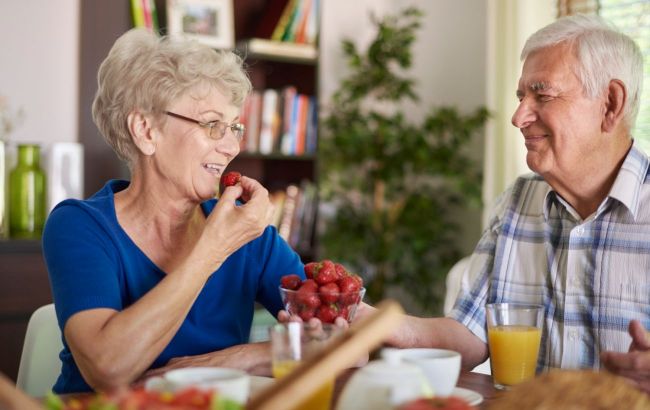What to eat to reduce risk of heart disease - Doctor explains
 What foods reduce the risk of cardiovascular disease (Photo credit: Freepik)
What foods reduce the risk of cardiovascular disease (Photo credit: Freepik)
New scientific data show how the balance of polyunsaturated fats in nutrition affects the risks of developing cardiovascular diseases, especially in people with a genetic predisposition to them, according to the dietitian Oleg Shvets on Facebook.
What the research shows
"Researchers decided to find out whether consuming polyunsaturated fatty acids with food affects the risk of cardiovascular diseases in the context of the connection with a family history. For this, they assessed the association between biomarkers of low consumption of polyunsaturated fats and information about the family history of heart and vascular diseases," explains the doctor.
The analysis results, which used data from 15 observational studies, were published in December.
Scientists evaluated data on the level of polyunsaturated fatty acids in the blood and tissues of 40,885 adults without cardiovascular diseases. Family history was determined as the presence of a first-degree relative who had cardiovascular disease.
"According to the researchers' conclusions, a significant association was observed between biomarkers of low consumption and a family history of cardiovascular pathology. This discovery suggests the benefits of consuming fatty fish for people with a family history of cardiovascular diseases," writes Shvets.
It should also be noted that polyunsaturated fatty acids Omega-3 are abundant in fish from the salmon family:
- trout
- pink salmon
- chum salmon
- salmon
In addition, herring and sardines contain even more Omega-3 than any salmon. To meet the daily requirement of Omega-3, eating 100 grams (for men) or 150 grams (for women) of such fish is enough.
Earlier, we shared a list of 6 products that contribute to longevity.
This material is for informational purposes only and should not be used for medical diagnosis or self-treatment. Our goal is to provide readers with accurate information about symptoms, causes, and methods of detecting diseases. RBС-Ukraine is not responsible for any diagnoses that readers may make based on materials from the resource. We do not recommend self-treatment and advise consulting a doctor in case of any health concerns.

